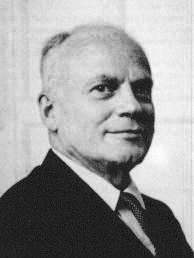Two years ago, Duke history professsor Nancy MacLean’s Democracy in Chains: The Deep History of the Radical Right’s Stealth Plan for America was published. Similar to Jane Meyer’s earlier book Dark Money: The Hidden History of the Billionaires Behind the Rise of the Radical Right, MacLean argues our current political predicament is “the [American political] right’s relentless campaign to eliminate unions, suppress voting, privatize public education, stop action on climate change, and alter the Constitution”; furthermore, this campaign finds its origins in the writings of James M. Buchanan, an economist who sought to re-assert Calhoun’s doctrine of states’ rights in the wake of Brown v. Board. Given the Left-wing slant of the story, publications such as NPR and The Altantic praised the book.
What made the backlash so important? It is easy to disprove MacLean’s thesis. For example, economist David Henderson noted back in June 2017 that they “who knew [Buchanan] well are more skeptical [of the central thesis of the book], partly because he was so bookish, so into thinking about fundamental ideas about governments and societies, and not really up to date on this or that political skirmish or current politician”.
Then came Russ Roberts’s article “Nancy MacLean Owes Tyler Cowen an Apology”. He dealt with MacLean’s remarks on pp. 222-224 concerning Tyler Cowen’s 2000 essay “Why Does Freedom Wax and Wane?”. Roberts provided evidence MacLean (1) took two statements from Cowen’s paper out of context, and (2) “ignores anything in Cowen’s essay that conflicts with her portrayal of Cowen as a sinister enemy of American institutions and democracy”. Henderson also pointed to selective quotation, this time from Buchanan himself. Regarding Buchanan’s Agrarian intellectual heritage, historian Phil Magness has shown how MacLean’s story “appears to be completely made up”; economist Donald Boudreaux wrote an open letter to MacLean’s interview in The New Republic, stating that Buchanan frequently cites “Adam Smith, James Madison, the Swedish economist Knut Wicksell, the American economist Frank Knight, and the Austrian-British economist F.A. Hayek”, while “the number of times that Calhoun is cited in any of Buchanan’s published works is zero”.
The criticism did not just come from those right-of-center, mind you. Henry Farrell and Steven Teles wrote an article for the left-leaning publication Vox accusing MacLean of presenting a “conspiracy theory in the guise of intellectual history”. Jennifer Burns of Stanford University points out in her History of Political Economy review that MacLean’s book is ” too heated, partisan, and shallow to accomplish [its] tasks successfully”, and is “rife with distortions and inaccuracies”. While Burns is no sympathizer to libertarianism, she concludes MacLean’s book “is not a book of scholarship, but of partisanship, written to reinforce existing divides and con¥rm existing biases”. Perhaps the most damning indicement comes from Michael Munger’s review in The Independent Jurnal:
…Duke University’s Department of Political Science is located on the main campus in Durham, North Carolina, and is listed in the campus phone book. Anyone at Duke who wants to find it will have no difficulty doing so. Anyone at Duke who wants to find it will have no difficulty doing so. Further, the department has two past presidents of the Public Choice Society (Geoffrey Brennan and Michael Munger) and one current president (Georg Vanberg). . . . I would expect that a sophomore undergraduate who is writing a paper on Buchanan, even a one-off paper for a classroom assignment, would recognize the value in consulting Brennan, at a minimum, and probably also Vanberg (who was a family friend of Buchanan since childhood). But neither Brennan nor Vanberg were ever consulted, nor even contacted, by MacLean. Nor, if it matters, was I.
I need not detail every criticism of MacLean’s book – Jonathan Adler of the Washington Post has already done so. To date, MacLean’s only response to her critics comes in the form of an interview for The Chronicle of Higher Education. According to MacLean, “Such rhetorical bullying” is “part of a pattern on the right of escalating attempts to intimidate scholars who disagree with them”.
What nuance in a time of bulverism.
Fast forward to Thursday, 23 June 2019. In an interview with Matthew Street on her new book Outrages: Sex, Censorship and the Criminalization of Love, Dr. Naomi Wolf claimed she found “several dozen executions” of sodomites in mid-19th century Britain according to “the Bailey records”. Citing the 1835 Thomas Silvo case, Street stated “Silvo wasn’t executed”; the phrase used in the case, “death recorded”, was “a category created in 1823 that allowed judges to abstain from pronouncing sentences of death” (see here). When asked for the sources of his understanding, Street pointed to the defintion from the Old Bailey Records website, “a newspaper report about Thomas Silvo”, and “the prison records that show the date of his discharge”. (The relevant audio starts at the 24:30 timemark.)
Almost a week later, Dr. Klein complained on her Twitter feed that “the debate ove[r] executions of men for sodomy is resulting in completely false belief that men were not executed”. Twitter user Ragnar Danneskjöld retorted, “You got schooled live on the air about a basic term, and now you’re doubling down. You cited a famous hoaxer as one of your sources”.
Now, I frankly have no interest in someone who has authored books with titles such as Vagina: A New Biography, or intellectual history premised on the hermeneutics of suspicion. However, both scholars find themselves in situations comparable to the Two Minutes Hate directed at the students from Covington Catholic High School. Furthermore, unlike the Covington Catholic incident, both scholars are recognized experts in their areas of expertise. So why would they publish books containing fundamental misunderstandings of their subject matter? (While I recognize that Wolf has made far fewer mistakes compared to the litany of charges against MacLean listed above, it seems the mistake pointed out in the BBC interview has the power to discredit the major argument of her book. That is the aspect in which I believe her book is comparable to MacLean’s.)
If you read Edward Feser’s take on the “Bizarro world of left-wing politics”, you will understand that modern American liberalism is characterized by “a Marxoid hermeneutics of suspicion deployed in the service of” a counter-morality to the Judeo-Christian tradition. When compared to the botched roll-out of the Green New Deal proposed by House Democrats and recent claims that Attorney General William Bar is a Russian operative, it becomes apparent this hermeneutics of suspicion is starting to take root in the academy as well as the mainstream Left. If you are not convinced of my conclusion, I would like to pose the following questions:
- If you are an historian writing a book on one of the most influential economists of the last century, why would you focus on archival material to the exclusion of his published works?
- If you are an American scholar dealing with British legal documents, why would you not spend the time to make sure you understood the meanings of key legal terms?
I’m not saying the Right never does this. It most certainly does. However, debate such as that between Jaffa and DiLorenzo was not covered in mainstream publications. Naomi Wolf is a well-known author and former advisor to Bill Clinton and Al Gore. Nancy MacLean’s work on the Ku Klux Klan and American labor history has earned her several awards. Why would either scholar wish to ruin her reputation on the basis of elementary mistakes?
 A rather interesting passage from D.D. Raphael’s short book Adam Smith (Oxford University Press, 1985):
A rather interesting passage from D.D. Raphael’s short book Adam Smith (Oxford University Press, 1985):

You must be logged in to post a comment.